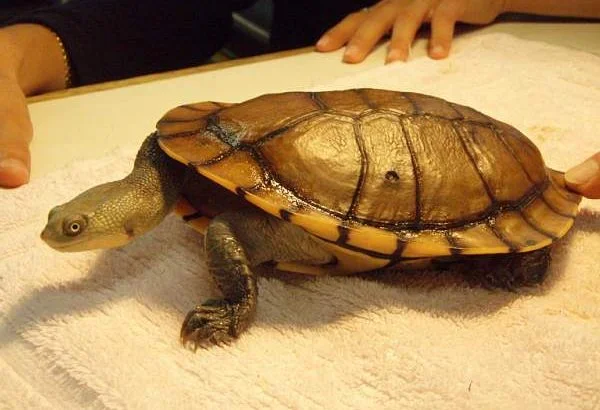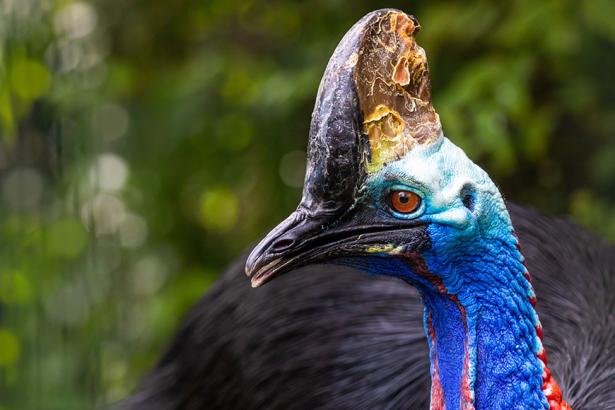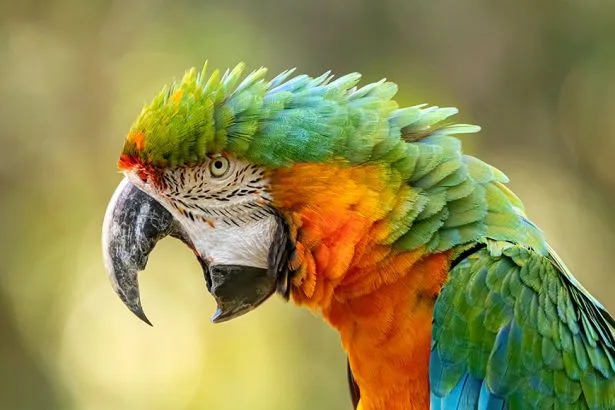Obesity isn’t only a problem encountered by humans in modern society. As an avian veterinarian, I regularly treat many birds suffering from obesity and its associated problems. One of the main causes of obesity in pet birds is diets that are too high in fat content and deficient in essential vitamins and minerals.
I commonly see overweight Sulphur Crested Cockatoos, Galahs, Budgerigars, Corellas, and Cockatiels. These birds originate from dry, inland Australia and their metabolism is geared to a low fat diet. They shouldn’t have any sunflower seed in their diet at all. Before Europeans came to Australia, they would never have experienced high fat, sunflower seed diets. As a result of their inappropriate diet, it is not unusual to treat these birds that weigh more than twice their normal weight.
| BIRD | NORMAL WT.RANGE | OBESE WEIGHT |
| Budgie | 35 – 45 gms | 60 – 70 gms |
| Galah | 300 – 350 gms | 650 – 700 gms |
| Sulphur Crest Cockatoo | 650 – 800 gms | 1.2 kg – 1.6kg |
Another cause of obesity in pet birds is their sedentary lifestyle. Pet house birds don’t get enough exercise to burn off excess calories. Aviary birds have more opportunity to fly and exercise and are less likely to suffer from obesity and its related disorders.
Single pet birds that are sexually frustrated often become obsessive compulsive about eating. When a bird is frustrated in fulfilling one of its normal behaviours (e.g.. Bonding with a mate and nesting) they often become obsessive compulsive about another one of their normal behaviours (e.g.. Eating, drinking, grooming). When they become obsessive compulsive about food, they can very quickly become obese.
Obese birds have an increased risk of many diseases, including arthritis, heart disease, and cancer. Most commonly, obesity affects the liver. Healthy liver cells are replaced by fat cells and the liver becomes enlarged and unhealthy. The enlarged liver puts pressure on the air sacs and respiratory system. Consequently, many obese birds are presented suffering from respiratory disorders and have difficulty in breathing. When the liver is enlarged and unhealthy, the blood doesn’t clot and obese birds suffering from associated fatty liver are in danger of dying from an internal haemorrhage. (e.g. Cockatiels are often presented coughing or sneezing blood).
Obese galahs are often presented suffering from benign, fatty lumps (lymphomas) growing around their abdomen and vent. Owners first notice the lumps and bring their birds in for veterinary attention. They are horrified to learn that the lymphomas are a side affect of obesity and an unhealthy lifestyle. In the majority of these cases changes to diet and lifestyle will reduce the size of the lump and will reduce or eliminate the need for major surgery.
Obese birds need to be treated for associated health problems caused by unhealthy lifestyles. Owners need to be educated about healthy diets for their birds. Weight loss and exercise programs should be undertaken under the supervision of an avian veterinarian. All pet bird owners should have a set of digital scales and regularly weigh their birds. It is also important to have yearly “wellness” checks at your avian veterinarian to keep a check on weight and diets.
Information supplied by (c) Currumbin Valley Vet Services August 2010
FAQs
Visible signs of obesity in birds may include difficulty flying, laboured breathing, and fatty deposits under the skin. To accurately assess your bird’s weight, you should do a search for an exotic small animal vet near me to get a proper examination and advice on a healthy weight range.
Obesity can lead to several health issues in birds, such as heart disease, liver problems, joint pain, and reduced lifespan. We recommend you search for exotic vets around me and take your pet bird for regular check-ups, as this can help detect and manage these risks early on.
To prevent obesity, ensure your bird has a balanced diet, regular exercise, and mental stimulation. Consulting with a small animal exotic vet can help you develop a tailored care plan to maintain your bird’s overall health and well-being.
A balanced diet for your pet bird should include a variety of fresh fruits, vegetables, grains, and an appropriate pellet mix. Search for an exotic veterinary clinic near me and consult with a vet to determine the best diet plan for your bird.






My galah weighs 440g I just don’t know how to reduce his weight. When should he be eating? How often should he eat? How much should he eat? He eats chop, seeds exc sunfliwere seeds and pellets. Flies around in the house only.